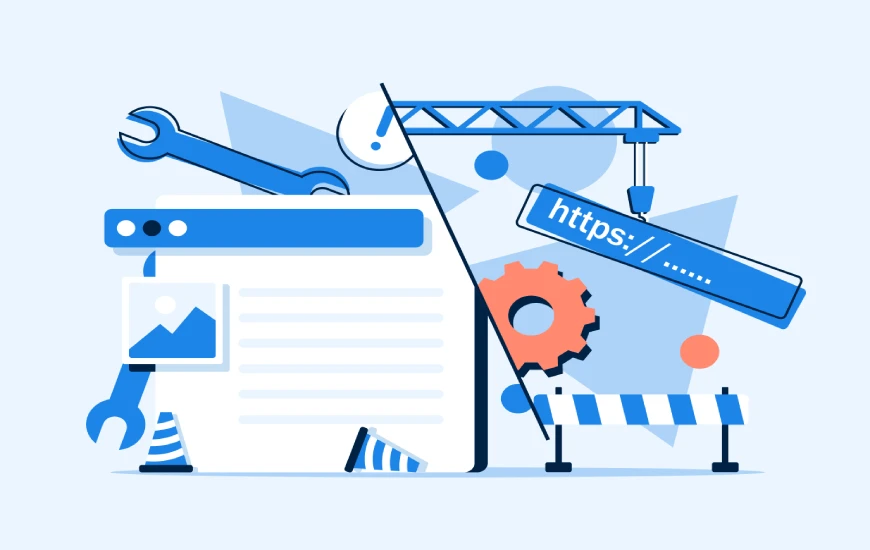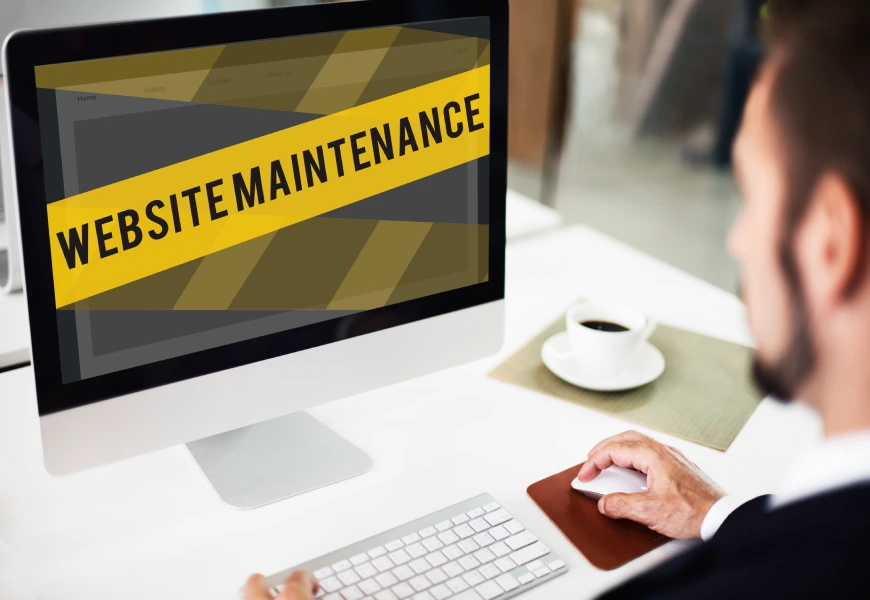Running a business today without a well-maintained website is like owning a shop with broken lights and dusty shelves. People might still find you, but they won’t stay long or trust your brand. Over the years of working with different businesses online, I’ve seen one clear truth: a website is not a one-time project, it’s an ongoing responsibility. Regular maintenance keeps your site fast, secure, and user-friendly.
It also ensures customers have a smooth experience every time they visit. In this article, I’ll share why website maintenance is so important for businesses and how it can directly impact growth, trust, and long-term success.
What is Website Maintenance?
Website maintenance means keeping your website updated, secure, and working smoothly. It includes:
- Updating software, themes, and plugins.
- Fixing broken links and errors.
- Improving speed and performance.
- Running backups.
- Updating content and images.
Many people confuse web design or development with maintenance. But launching a website is only the beginning. Maintenance is the ongoing process that ensures your site continues to serve your business well.
Why Website Maintenance Matters for Businesses

Security & Protection
Cyberattacks are real, and small businesses are often the easiest targets. I’ve seen websites hacked simply because they skipped a simple update. Hackers look for outdated software, weak plugins, or old code.
Regular maintenance protects your website from malware, phishing, and data breaches. Updating security patches and running scans reduces risks. Think of it as locking the doors of your digital shop every night.
Improved User Experience
Have you ever visited a slow website that takes forever to load? Chances are you left within seconds. Your customers will do the same.
A well-maintained website loads quickly, works on all devices, and offers smooth navigation. When customers find what they need easily, they are more likely to stay, trust your brand, and buy from you.
Search Engine Optimization (SEO)
Search engines like Google love fresh and healthy websites. If your site is outdated, full of broken links, or loads slowly, your rankings will drop.
On the other hand, when you update content, fix errors, and keep your site optimized, search engines reward you with better visibility. More visibility means more traffic, and more traffic means more leads.
Business Credibility & Professionalism
First impressions matter. If a customer lands on your website and sees outdated information or broken features, they will question your professionalism.
I once had a client with old product pages showing “out of stock” items that were actually available. They lost sales simply because the site wasn’t updated. A clean, updated website tells visitors you care about your business and your customers.
Cost Efficiency
Many business owners ignore maintenance because they think it saves money. In reality, it’s the opposite.
If you don’t fix small issues early, they grow into bigger problems. I’ve seen businesses pay thousands to restore hacked websites or recover lost data. Regular maintenance is far cheaper than emergency repairs.
Compliance & Compatibility
The internet evolves every day. Browsers update, devices change, and legal requirements shift.
Consequences of Ignoring Website Maintenance
Skipping maintenance may not hurt immediately, but over time the problems pile up. Some common consequences are:
- Higher risk of hacking and data loss.
- Frustrated customers who leave your site.
- Lower search engine rankings.
- Unexpected downtime that hurts sales.
- A damaged brand reputation.
In short, ignoring website maintenance is like ignoring car maintenance. It may run fine today, but sooner or later it will break down.
Best Practices for Website Maintenance

Now that you know why it’s important, here are some best practices I recommend:
- Update Software Regularly – Keep your CMS, plugins, and themes up to date.
- Run Security Scans – Protect against malware and hacking attempts.
- Back Up Frequently – Always have a backup in case something goes wrong.
- Monitor Performance – Check loading speed, mobile responsiveness, and broken links.
- Refresh Content – Update text, images, and blogs to stay relevant.
- Check Analytics – Monitor visitor behavior to spot issues early.
- Hire Experts if Needed – If you don’t have time, consider a professional maintenance service.
These steps may sound simple, but they can make a huge difference for your business.
Conclusion
Your website is one of the most valuable assets your business has. It works 24/7, reaches customers worldwide, and represents your brand. But just like any business tool, it needs regular care.
From security to customer experience, from SEO to cost savings, the benefits of website maintenance are huge. I’ve seen businesses grow simply by keeping their sites healthy. And I’ve seen others struggle because they ignored it.

